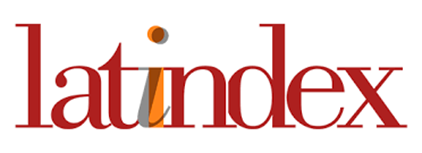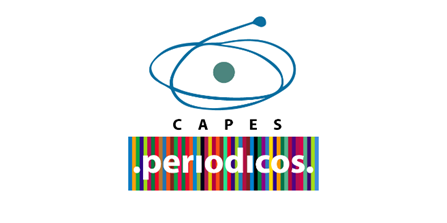RISCOS E POSSIBILIDADES DO ATIVISMO JUDICIAL NA DEMOCRACIA
DOI:
https://doi.org/10.14210/rdp.v16n1.p181-200Palavras-chave:
Ativismo Judicial, Democracia, Representação PolíticaResumo
RESUMO
O objetivo deste trabalho é verificar em que medida é possível conciliar ativismo judicial e democracia, considerando principalmente os desafios que se apresentam as relações sociais contemporâneas. A justificativa desta proposta se sustenta no fato de que o Poder Judiciário tem sido cada vez mais procurado para dar conta de demandas envolvendo as insuficiências das politicas públicas governamentais em face de direitos fundamentais. Demarcamos como problema da abordagem verificar se é possível superar eventuais tensões entre o excesso de ativismo judicial e a democracia enquanto representação politica também institucional de outros poderes, e como hipótese a premissa de que deva-se adotar, para a solução do problema, perspectiva ampliada da atuação do Poder Judiciário a partir da compreensão igualmente oxigenada da Democracia e dos seus outros legítimos protagonistas, sob pena do esvaziamento de instancias importantes de deliberação e decisão política quotidiano. A metodologia utilizada neste trabalho foi a hipotética dedutiva.
PALAVRAS-CHAVE: Ativismo Judicial; Democracia; Representação Política
ABSTRACT
The objective of this work is to verify to what extent it is possible to conciliate judicial activism and democracy, considering mainly the challenges presented by contemporary social relations. The justification of this proposal is based on the fact that the Judiciary has been increasingly sought to deal with demands involving the inadequacies of governmental public policies in the face of fundamental rights. We point out as a problem of the approach to verify if it is possible to overcome possible tensions between the excess of judicial activism and democracy as a political representation also institutional of other powers, and as a hypothesis the premise that it should be adopted, for the solution of the problem, the oxygenated understanding of Democracy and its other legitimate protagonists, under penalty of emptying important instances of deliberation and daily political decision. The methodology used in this work was the hypothetical deductive.
KEY-WORDS: Judicial Activism; Democracy; Political Representation
Downloads
Referências
ALEXANDER, Larry. Constitutionalism, Philosophical Foundations. Cambridge: Cambridge University Press, 1998.
BICKEL, Alexander. The Least Dangerous Branch. New Haven: Yale University Press, 1962.
BOBBIO, Norberto. Stato, Governo, Società . Per una teoria generale della politica. Turin: Giulio Einaudi, 1985.
BRUN, Henri; LEMIEUX, Denis. Politisation du pouvoir judiciaire et judiciarisation du pouvoir politique: la séparation traditionnelle des pouvoirs a-t-elle vécu? In Les Cahiers de droit, 18(2-3), 265–313, 1977. doi:10.7202/042167ar
CRUET, Jean. A vida do direito e a inutilidade das leis. Lisboa: José Bastos & Cia., 1990.
DWORKIN, Ronald. Taking Rights Seriously. Boston: Harvard University Press, 1977.
_________. A Matter of Principle. Boston: Harvard University Press,1985.
_________. Law's Empire. Boston: Harvard University Press, 1986.
_________. Life's Dominion. New York: Vintage Books, 1993.
_________. Freedom's Law. Boston: Harvard University Press, 1996.
__________. Sovereign Virtue: The Theory and Practice of Equality. Boston: Harvard University Press, 2000.
_________. Justice in Robes. Boston: Harvard University Press, 2006.
_________. Is Democracy Possible Here? Principles for a New Political Debate. Princeton: Princeton University Press, 2006.
_________. Justice for Hedgehogs. Boston: Harvard University Press, 2011.
GÓMEZ, Enrique Serrano. Legitimación y Racionalidad. Weber y Habermas. Barcelona: Anthropos/Promat, 1994.
KASHYAP, Subhash. The citzen and judicial reforms under Indian polity. London: Hammick’s Legal Bookshop, 2003.
________________. Political reforms for good governance – a policy brief. Florida: W. Gaunt & Co., 2007.
KELSEN, Hans. Teoría Pura del Derecho. Edición de 1934. Madrid: Trotta, 2011.
___________. Teoría Pura del Derecho. Edición de 1960. Buenos Aires: Eudeba, 2009.
KMIEC, Keenan D. Origin and Current Meanings of Judicial Activism. In California Law Review, Vol.92/1441 (2004). Disponível em: <http://scholarship.law.berkeley.edu/californialawreview/vol92/iss5/4>. Acesso em: 19 nov. 2017.
LA LIGUE DES DROITS DE L’HOMME. Le pouvoir judiciaire et
la separation des pouvoirs sous pression. Disponível em:< http://www.liguedh.be/wp-content/uploads/2017/05/avril2017_analyse_ldh_pouvoir_quilibre_pouvoirs.pdf>. Acesso em 25 jun. 2018.
LEAL, Rogerio Gesta. A decisão Judicial: elementos teórico-constitutivos à efetivação pragmática dos Direitos Fundamentais. Chapecó: UNOESC, 2012.
________________. Hermenêutica e Direito. Santa Cruz do Sul: EDUNISC, 2002.
MAHONEY, Paul. Judicial Activism and Judicial. Self-Restraint in the European Court of Human Rights: Two sides of the same coin. In Human Rights Law Journal, Vol. 11, nr. 1-2 (1990), p. 57-88.
MENGONI, Luigi. Ermeneutica e Dogmatica Giuridica. Milano: Giuffre, 2006.
OLDFATHER, Chad M. Defining judicial inactivism: models of adjudication and the duty to decide. Disponível em: <http://ssrn.com/abstract=877002>. Acesso em 20 out. 2017.
ROCHA, Leonel Severo. Epistemologia Jurídica e Democracia. Canoas: Editora Unisinos, 1998.
ROSANVALLON, Pierre. La Démocratie Inachevée: histoire de la souveraineté du peuple en France. Paris: Gallimard, 2000.
ROUSSEAU, Dominique. Droit du contentieux constitutionnel. Paris: Montchrestien, 1999.
STRECK, Lênio Luis. Hermenêutica Jurídica em Crise. Porto Alegre: Livraria do Advogado, 2013.
SUNSTEIN, Cass R. A Constitution of many minds. Princeton: Princeton University Press, 2009.
TREMBLAY, Luc B. General Legitimacy of Judicial Review and the Fundamental Basis of Constitutional Law. In Oxford Journal of Legal Studies. Vol. 23, nr. 4 (2003). Oxford: Oxford University Press, 2003, p. 525–562.
TROPER, Michael. The Judicial Power and Democracy. Disponível em: <http://diana-n.iue.it:8080/bitstream/handle/1814/7714/EJLS_2007_1_2_13_TRO_EN.pdf?sequence=1&isAllowed=y>. Acesso em 25 jun. 2018.
VERMEULE, Adrian. Judging under uncertainty. Cambridge: Harvard University Press, 2006.
WARAT, Luis Alberto. A Pureza do Poder. Florianopolis: UFSC, 1983.
________________. Senso Comum Teórico: as vozes incógnitas das verdades jurídicas. In: Introdução Geral ao Direito. Porto Alegre: Fabris, 1994.
ZANNONI, Eduardo A. Crisis de la razón jurídica. Buenos Aires: Astrea, 2005.
Downloads
Publicado
Como Citar
Edição
Seção
Licença
Na qualidade de autor(es) da colaboração, original e inédita, sobre o qual me(nos) responsabilizo(amos) civil e penalmente pelo seu conteúdo, após ter lido as diretrizes para autores, concordado(amos) com o Regulamento da Revista Eletrônica Direito e Política e autorizo(amos) a publicação na rede mundial de computadores (Internet), permitindo, também, que sua linguagem possa ser reformulada, caso seja necessário, sem que me(nos) seja devido qualquer pagamento a título de direitos autorais, podendo qualquer interessado acessá-lo e/ou reproduzi-lo mediante download, desde que obedeçam os Direitos Autorais.

















